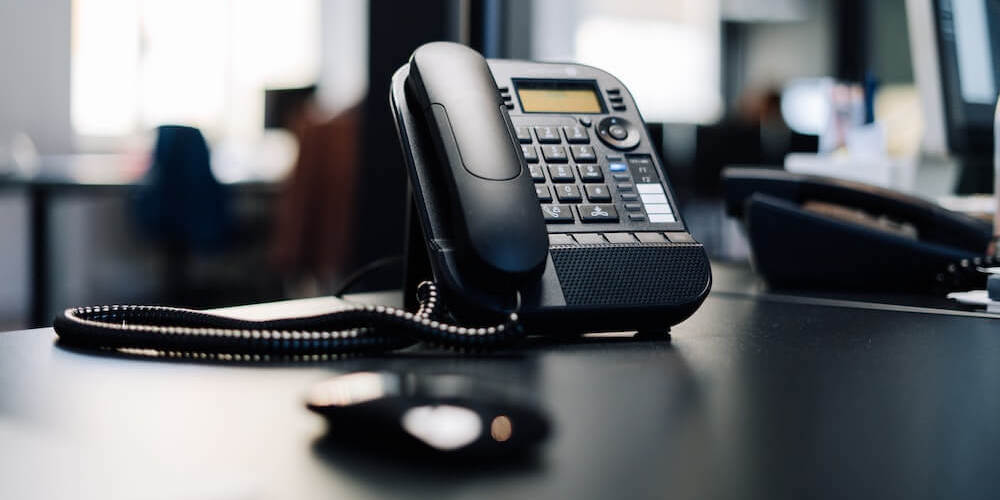Airbnb Rental Agreement: Free Template for Hosts
Last Updated: February 2024
We don’t always read the fine print, but when renting your property to guests on Airbnb, the fine print can be a lifesaver—especially when the unpredictable happens. Having a short-term rental agreement for Airbnb can be a massive asset for you and your guests.
But does Airbnb allow rental agreements? Yes! As a host, you have the power to require guests to sign an agreement before their stay. However, the terms of this contract must be fully disclosed in your listing description and communicated in your direct messages with the guest.
Drafting a simple Airbnb lease agreement or using a free Airbnb rental agreement template is about more than just ensuring your property’s safety; creates a clear understanding between you and your guests about what is expected from both parties.
Ideally, you want to save as many headaches as you can when owning and managing a vacation rental, so pairing the proper terms and conditions with robust vacation rental software will make running a short-term rental business a whole lot smoother.
Disclaimer: Lodgify is an Airbnb Preferred Software Partner. This guide, including any claims or statements within, is solely from Lodgify and is not endorsed by, directly affiliated with, authorized, or sponsored by Airbnb in any way.
If you’re a Lodgify customer and want to connect via API with Airbnb, please get in touch with our customer support team. For more information: Connect Lodgify to Airbnb
What is an Airbnb rental agreement?
An Airbnb rental agreement is more than just a formality; it’s a saving grace. This agreement acts as a mutual understanding between you and your guests about what exchange each party will get in the rental process.
An Airbnb rental agreement lets guests know ahead of time what they should know about the property, like occupancy limits, noise level regulations, and what safety measures are in place.
On the other hand, it also provides the host with helpful information such as contact details and an understanding that the guests agree to any potential costs not initially discussed.
Why do you need an Airbnb lease agreement?
Airbnb has its own terms and conditions, so why do you need an Airbnb lease agreement? Airbnb’s terms and conditions are intended to be general, but every property is unique and, therefore, should have its own customized rental agreement.
Most hosts benefit from (and need) a rental agreement of their own to cover additional details that might be important to their vacation homes and properties. For example, if you offer unique amenities, like a swimming pool or fire pit, a special agreement is especially important because specific rules must be put in place for your guests to enjoy their stay safely.
Additionally, when using the right Airbnb rental agreement template, you’ll leave no room for unknowns or “what ifs” on either side of the agreement.

You want your guests to take care of your property, but you want them to have a good time, too! A personalized agreement ensures they know what they can and cannot do. For example, if you have a backyard playset, you want your guests to feel comfortable knowing they’re allowed to use it.
Writing up an Airbnb rental agreement ultimately improves the guest experience by giving them the confidence to fully use the facilities of your property.
Won’t this put certain guests off of booking a stay? Maybe a few here and there, but not many. Plus, the guests willing to sign an Airbnb lease agreement are the ones you want staying at your property.
Consider it a form of guest screening. If potential guests plan to break the rules, invite extra guests, or trash your property, they’re not going to sign it, which, in the end, will save you the hassle of dealing with their shenanigans and potential damage post-stay.
Moreover, accidents happen—even with the best of guests. Having a short-term rental agreement for your Airbnb will prevent the scenario of fighting the details of the damage with your guests. Informing guests about the damage policy in your rental agreement eliminates friction later. It’s also a very informal and respectful way to encourage guests to treat your property with extra care.
What to include in an Airbnb rental agreement
Once you’ve decided that creating an Airbnb rental agreement is the right step for your property, you’ll have to decide what to include in it. You want the contract to be informative, but it doesn’t have to read like a textbook.
You also don’t have to reinvent the wheel. If some of the terms are obvious, like no painting the walls or taking the TV home, then it’s probably not necessary to include them. The goal is to ensure guests are fully aware of what they agree to when booking a stay, so keep it as simple and as concise as possible.
Property details
By now, your guests have probably already browsed through photos, read some reviews, and checked out your page. However, you still have a responsibility to inform them of all accessible aspects of the property. For example, if you have a jacuzzi, but it’s only available for part of the year, it’s essential to disclose that in your short-term rental agreement. In short, while they may have already seen your property, they should be able to read through and fully agree to the details of the stay as well.
Contact information
What sets a vacation rental apart from most hotels is the uniqueness of the property and the “homey” feeling it offers. While you’re not downstairs in a lobby waiting to tend to their every need like most hotel staff are, it doesn’t mean guests don’t still expect attentive service for their stay.
To keep your guests happy, you should provide a couple of different means of getting in touch with you, whether that’s through a property manager or by leaving your home and cell phone number. Guests need to know how to reach you in case of an emergency.
Tip: Provide a “regular” number and an emergency number. Give an estimate of how long until guests can expect a response (within 24 hours is a good policy) from your non-emergency line and explain that if something is urgent, they can contact the emergency number listed.

If you have a larger property and staff, providing their contact information might be helpful, too. If a customer loses their keys at two in the morning or the shower won’t drain, they need to know who to contact. By providing all the necessary contact information for your guests, you help improve your guests’ satisfaction and keep them coming back for future stays.
Worried that including staff details might make running your vacation rental business more complicated? Use property management software to manage staff and tasks. For example, if your guest contacts someone from your repairs team, you can assign the task and distribute payment within this management system.
House rules
House rules are one of the most important parts of your Airbnb lease agreement, so be thorough. Whatever you leave out could be open to interpretation. Luckily for you, we have a downloadable template outlining Airbnb house rules to include.
Occupancy conditions
You should clearly note on your website or listing sites how many bedrooms are available.
This is especially important for larger accommodations, like villas, where the occupancy limits are sometimes more vague. With pull-out couches, twin beds, and multipurpose rooms, guests might not know how many people are allowed to stay at your property. By explaining the exact occupancy rate, you eliminate any grey areas for travelers.
If you need further support for your occupancy conditions, you can always cite your local ordinance stating the maximum occupancy for your building.
Tip: You don’t have to write about occupancy in your Airbnb rental agreement in a negative way (e.g. “We only accept a maximum of four travelers; absolutely no more.”). Use it as an opportunity to demonstrate your flexibility. If you offer a baby crib or collapsable beds upon request, you can state that in your occupancy section as well.
Minimum and maximum stay requirements
The average duration of short-term stays has changed quite a bit over the past couple of years. More travelers are opting to work remotely and turn their vacations into long-term trips. For hosts, mid-term and long-term stay allowances have plenty of advantages, like reduced turnover and more consistent income. Still, to keep your property classified as a “vacation rental” and not a regular rental, you’ll need to set a stay limit.
Stay limits are entirely personal. If you live close to your property and guest turnover requires less work, maybe you’ll choose not to implement a minimum stay. On the other hand, if it’s costly to prepare your property for new guests, you might request that your guests stay longer.
In any case, you’ll need to be very clear about the minimum and the maximum number of days a guest is allowed to rent out. If you charge additional fees for exceeding maximum stays or not meeting minimum stay requirements, you can briefly mention it here but also provide further details in the “rental rates and additional charges” section below.
Check-in and check-out terms
Offering a smooth check-in and check-out experience to guests is part of running a successful vacation rental business—it ensures a great guest experience, sure, but it’s also a crucial part of an organized, efficient vacation rental management workflow.
If your check-in times are all over the place or guests leave your property in horrible conditions just before another guest arrives, you may appear unprofessional. And that’s not even taking into account the various costs associated with a bad check-in and check-out!
So, when drafting an Airbnb rental agreement, clearly write the exact dates and times of each guest’s check-in and check-out. If you’re using an Airbnb agreement template, double-check this part. You should manually write it out and ensure the time frames are clear to avoid late arrivals or overstaying.

If you can make exceptions in certain situations or for certain travelers, state that those requests can be made but require approval with advanced notice or for a fee. If your check-in and checkout policies vary between off-season and peak season, mention that here as well.
Remember that your guests aren’t in the vacation rental industry. They’re just…guests! You’ll need to treat them as such by being very informative about your check-in and checkout conditions without using too much industry jargon.
Airbnb fees
It’s important to understand Airbnb fees as a host, as they affect your business’s bottom line. But you should also inform your guests of any related fees, too.
For example, a large chunk of the total sum goes towards a mandatory cleaning fee. Guests might want to see the price breakdown on things like cleaning services so they know where their money is going.
The list is quite expansive and varies between property types. For a comprehensive look at all the fees associated with Airbnb, download our free guide here!
Rental rates and additional charges
Beyond regular Airbnb fees, you might have some additional expenses of your own that aren’t typically included on Airbnb listings (like city or tourist taxes). It’s important to explain those in the rental agreement to avoid confusing guests. The last thing you want is to leave them confused about discrepancies in the total fees they’re charged and the ones listed on Airbnb.
If you need to add multiple additional charges, put each fee in bold and add a short explanation of the expense.

Rental rates are equally important to explain because they help your guests understand that you didn’t come to the price point at random. If your rates vary depending on holidays, seasonality, or any other factors, it helps to provide at least a surface-level explanation to your guests. Transparency is key.
Clearly stating the rental rates and any discounts available in advance might also increase your profits. Guests might decide to book an additional week later in the year if they see your off-season rates are competitive, or they might decide to extend their stay if they see that their nightly rate could decrease by 10% by staying at least two weeks.
Ultimately, the goal of providing a comprehensive Airbnb rental agreement is to inform your guests, but you can take advantage of profit opportunities here as well.
Damage deposits
Beyond rates, you’ll need to mention any charges that you issue outside of Airbnb. A damage deposit is one of the most common ones, and unfortunately, isn’t included in Airbnb’s list of fees. If an incident occurs, Airbnb will collect the damage payment after the fact, which is helpful, but it could involve chasing down guests, delayed collection, or, in the worst case, no repayment at all.

To avoid these possible scenarios, you can include a damage deposit in your rental agreement. The terms of the deposit should be added as well, such as how long you plan to hold the deposited amount after the stay and the next steps if the damage exceeds the deposit amount.
Discounts
Mentioning fees doesn’t always have to be negative. Use the “rental rates” section of your Airbnb rental agreement to offer discounts for certain travelers. Discount groups could include military members, seniors, frequent visitors, or residents, just to name a few. Guests should be aware of these discounts before booking, but you can also put them in the rental agreement so the discount rate and parameters are clear and up-to-date.
Insurance recommendations
Airbnb offers two forms of insurance: liability and coverage for the host. Host protection insurance can cover up to $1,000,000 USD depending on the situation, damage, and case. It’s intended to cover property damage or injuries for the guests.
The other policy provides coverage for the host. Airbnb’s host guarantee states that you might be protected with up to $1,000,000 for your place and belongings.
As with most insurance options, there are specifications for both plans. Coverage isn’t guaranteed by any means, and there are certain scenarios that aren’t include (such as certain types of theft or regular damage from wear and tear).
You might find that you need extra protection in case of any unexpected damage. Explore what rental insurance options would be best for your property and explain the terms of your policy in this section of your Airbnb rental agreement. If your policy requires claims, petitions, or any sort of involvement from the guests’ side, they should know about this in the contract.
Airbnb cancellation policy
To avoid confusion between you and your guests, you should ensure they’re aware of your cancellation policy your Airbnb rental agreement. Just because it’s listed on your website doesn’t mean it shouldn’t also be included here. The goal is to demonstrate to your guests that your property complies with this policy, and in the event of cancellation, you will uphold the terms set in place by Airbnb.

There are ways to prevent cancellations, but they do happen for various reasons, and having this clause in your Airbnb rental agreement could save you from any refund disputes that could arise. If a guest disagrees with how a cancellation was handled, you can politely and tactfully point to the Airbnb rental agreement as proof of what they agreed to.
Payment details
Now to the fun part: money! Clearly break down what part of the booking total goes towards the rental versus fees or taxes. Having a full breakdown of the cost and payment details will give your guests a clear understanding of where their money is going and how they can pay for their booking.
This might come in handy down the road for legal purposes, too. Some states and localities issue a tourist tax, and you can use your rental agreement as additional proof of payment. Likewise, for tax purposes, it’s helpful to have the payment details included when it’s time to file your taxes.
Signatures of both parties
If you and your guests agree to the terms and conditions of the “short-term rental agreement Airbnb” or whatever you decide to call your contract, it’s time to sign! The rental agreement is completely null without a valid signature, so make sure your guests sign in the correct places.
You might also require initials throughout the agreement in places that hold more importance, such as check-in and check-out, home rules, or anything else you deem especially important.
Signatures should be accompanied with printed names and dates of signing to ensure further validity.
When to send the Airbnb rental agreement to guests
Don’t surprise your guests by handing over the papers right as they’re checking into their stay. Guests should be made aware of the rental agreement as soon as possible.
Mentioning that there will be a rental agreement upon booking on the description page is always good practice. Ultimately, you should give your guests as much time in advance as possible to read through the Airbnb contract template you use. After all, nobody likes unexpected paperwork—especially on vacation.

To avoid unnecessary hassle, you can automate the task of sending, reminding, and thanking your guests for the Airbnb rental agreement. Lodgify’s software allows you to automatically send all sorts of administrative tasks like a heads-up about your Airbnb rental agreement to newly booked guests or even a thank-you note after check-out. Simplify the steps of reservations with Lodgify’s Airbnb management software.
You can also choose to send a digital copy or collect a paper copy. Your guests might prefer an online copy out of convenience, but feel free to offer both. You can always upload a blank copy on your website so customers have an electronic version to read through before signing, too.
Download our free Airbnb rental agreement
An Airbnb rental agreement is an essential step in ensuring you and your guests are on the same page. These types of agreements can also protect you and your property in the event of any emergencies or unexpected situations.
Property management is complicated enough, and having multiple Airbnb lease agreements from guests can create a lot of administrative work. Use your time more efficiently and eliminate the need to manually handle this task by using vacation rental software (you can start a free 7-day trial today!).
Implementing a short-term rental agreement should be standard protocol for your vacation rental. Download our free, editable Airbnb rental agreement template below and keep your property protected from any potential problems.
*Disclaimer: This is NOT official legal advice nor an official legal document. Please consult an attorney or lawyer for more information about rental agreement documentation.